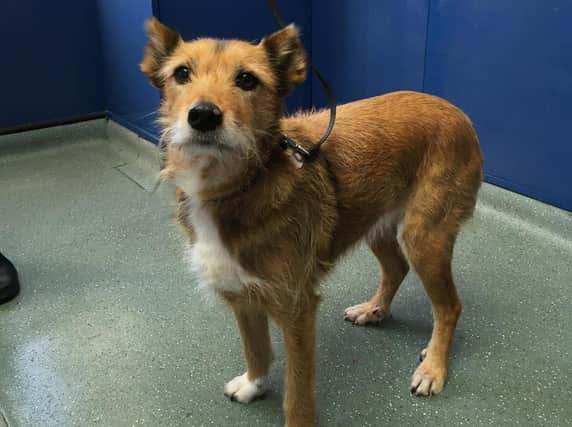Meg is from Spain her owner explained as I looked puzzled - Julian Norton


She was a new patient to the practice and needed her vaccinations, including those required to allow her to travel to and from continental Europe for a forthcoming family holiday.
In amongst the chaos of Brexit, vets were given regular, but often quickly obsolete, updates by Defra regarding how the regulations for the travel arrangements for cats, dogs and – amusingly – ferrets might change.
Advertisement
Hide AdAdvertisement
Hide AdI have completed hundreds of pet passports over the years but, disappointingly, I have never, ever come across a travelling ferret. I wish I had. It would make a great story – maybe one day I will write a book entitled, Travelling Europe with a Ferret, based on the adventures of said creature and me, a bit like Tony Hawkes’ book about hitching around Ireland with a fridge.
But this is beside the point and not the topic of today’s article, which is Meg.
Meg was apparently very healthy, but she looked unusual because her ears had been ‘clipped’. This cosmetic procedure was banned in Britain many years ago so it is not something we see often.
Clipping the ears involved cutting off the folding over part of the ear-flap. The result is that the ears look permanently pricked to attention, and the dog looks unusually and persistently alert.
Advertisement
Hide AdAdvertisement
Hide Ad“Meg is from Spain,” her owner explained, as I looked puzzled, partly because of her odd, non-UK ears, and partly because her vaccination certificate was in a language I did not understand. Only our once communal ring of golden stars on a dark blue background demonstrated a previous common allegiance.
“My husband found her in Spain. She was stranded at the bottom of a ravine. We think she’d fallen in and couldn’t get out.”
From the same folder as Meg’s Spanish vaccination certificate, her owner produced a photo album containing photographs of Meg at various stages throughout her rescue and recuperation. The consultation had changed from a clinical examination to an episode of This Is Your Life and brought parts of The Lion King to mind.
“And he climbed in, not knowing how he would catch her, let alone lift her out. He didn’t know if she was rabid or fierce. It turned out she was neither and now she’s our pet.”
Advertisement
Hide AdAdvertisement
Hide AdWe marvelled at the stoicism of animals and how some really did seem to land on their feet. I could not claim any stories of similar drama, but I do have some friends who recently rescued a street cat from Tbilisi, the capital of Georgia.
This cat, who is called Mtatsie, is as relaxed and content as any cat could be, having also landed on his feet and moved from the dusty mountainous area between Europe and Asia to his permanent home surrounded by alpine pastures in France, via Portsmouth.
Meg was fit and well, so I administered the appropriate vaccines and made the required additions to her pet passport to confirm her health and suitability to travel. Apparently, she revisited Spain regularly with her owners and was a seasoned traveller.
After the Brexit issue, vets have finally received some temporarily accurate information about pet travel. Happily, for Meg, Mtatsie and dogs and cats all over the UK, the big news has been confirmed: Nothing will change! At least, not until the end of 2020. Although in the current global crisis who knows when any of us will be free to use our passports ever again.